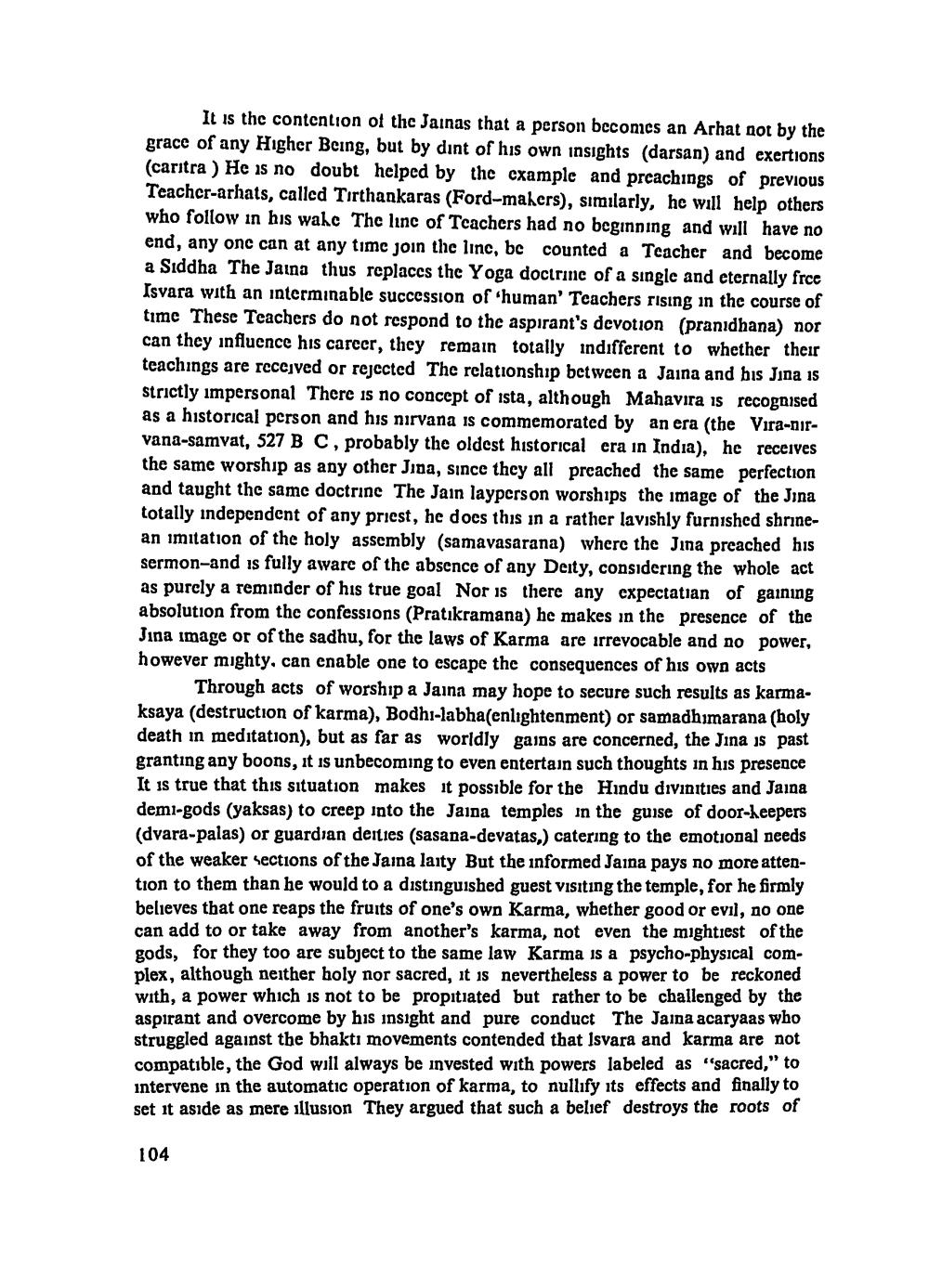________________
It is the contention of the Jainas that a person becomes an Arhat got by the grace of any Higher Being, but by dint of his own insights (darsan) and exertions (caritra ) He is no doubt helped by the example and preachings of previous Teacher-arhats, called Tirthankaras (Ford-makers), similarly, he will help others who follow in his walc The line of Teachers had no beginning and will have no end, any onc can at any time join the linc, bc counted a Teacher and become a Siddha The Jaina thus replaces the Yoga doctrine of a single and eternally free Isvara with an interminable succession of human' Teachers rising in the course of time These Teachers do not respond to the aspirant's devotion (pranidhana) not can they influence his career, they remain totally indifferent to whether their teachings are received or rejected The relationship between a Jaina and his Jina is Strictly impersonal There is no concept of ista, although Mahavira is recognised as a historical person and his nirvana is commemorated by an era (the Vira-nirvana-samvat, 527 BC, probably the oldest historical era in India), he receives the same worship as any other Jina, since they all preached the same perfection and taught the same doctrine The Jain layperson worships the image of the Jina totally independent of any priest, he does this in a rather lavishly furnished shrinean imitation of the holy assembly (samavasarana) where the Jina preached his sermon-and is fully aware of the absence of any Deity, considering the whole act as purely a reminder of his true goal Nor is there any expectatian of gaining absolution from the confessions (Pratikramana) he makes in the presence of the Jina image or of the sadhu, for the laws of Karma are irrevocable and no power, however mighty, can enable one to escape the consequences of his own acts
Through acts of worship a Jaina may hope to secure such results as karmaksaya (destruction of karma), Bodhi-labha(enlightenment) or samadhimarana (holy death in meditation), but as far as worldly gains are concerned, the Jina is past granting any boons, it is unbecoming to even entertain such thoughts in his presence It is true that this situation makes it possible for the Hindu divinities and Jaina demi-gods (yaksas) to creep into the Jaina temples in the guise of door-heepers (dvara-palas) or guardian deities (sasana-devatas,) catering to the emotional needs of the weaker Sections of the Jaina laity But the informed Jaina pays no more attention to them than he would to a distinguished guest visiting the temple, for he firmly believes that one reaps the fruits of one's own Karma, whether good or evil, no one can add to or take away from another's karma, not even the mightiest of the gods, for they too are subject to the same law Karma is a psycho-physical complex, although neither holy nor sacred, it is nevertheless a power to be reckoned with, a power which is not to be propitiated but rather to be challenged by the aspirant and overcome by his insight and pure conduct The Jaina acaryaas who struggled against the bhaktı movements contended that Isvara and karma are not compatible, the God will always be invested with powers labeled as "sacred," to intervene in the automatic operation of karma, to nullify its effects and finally to set it aside as mere illusion They argued that such a belief destroys the roots of
104




